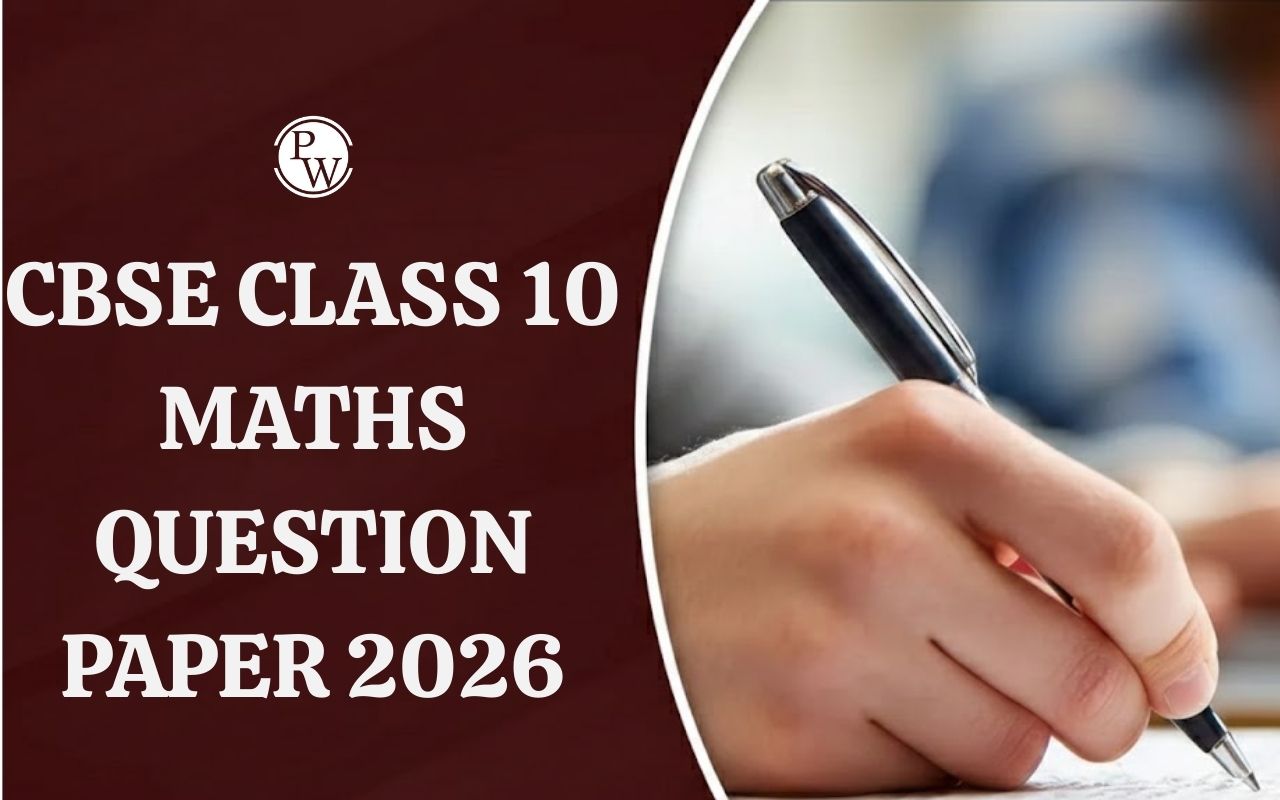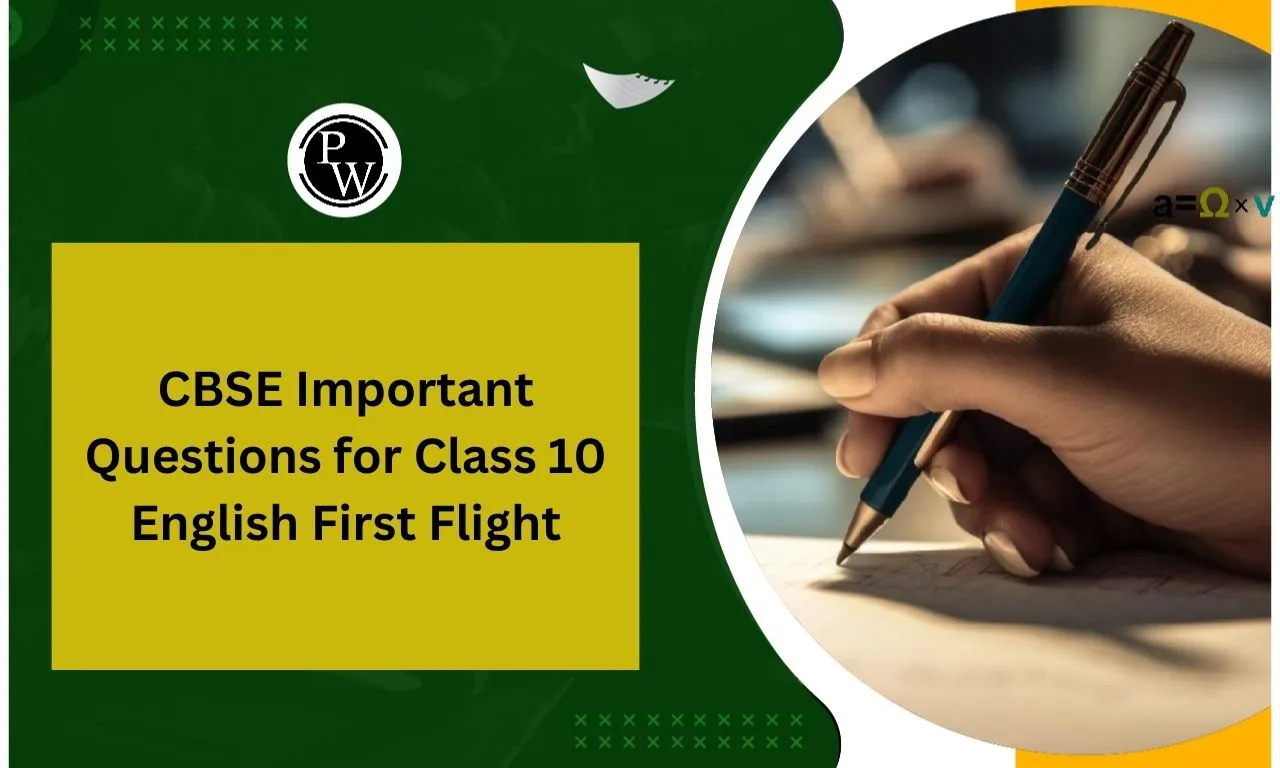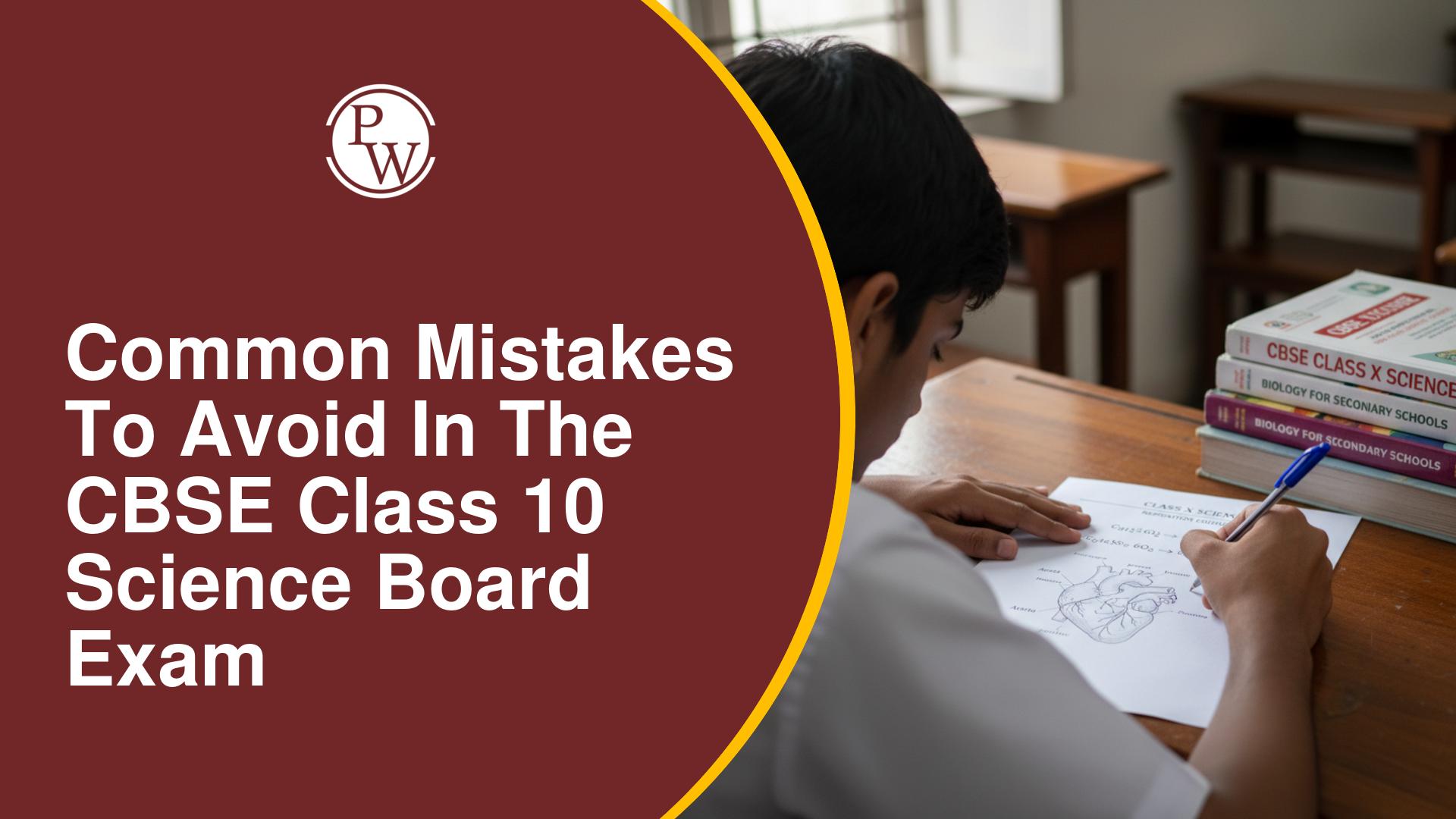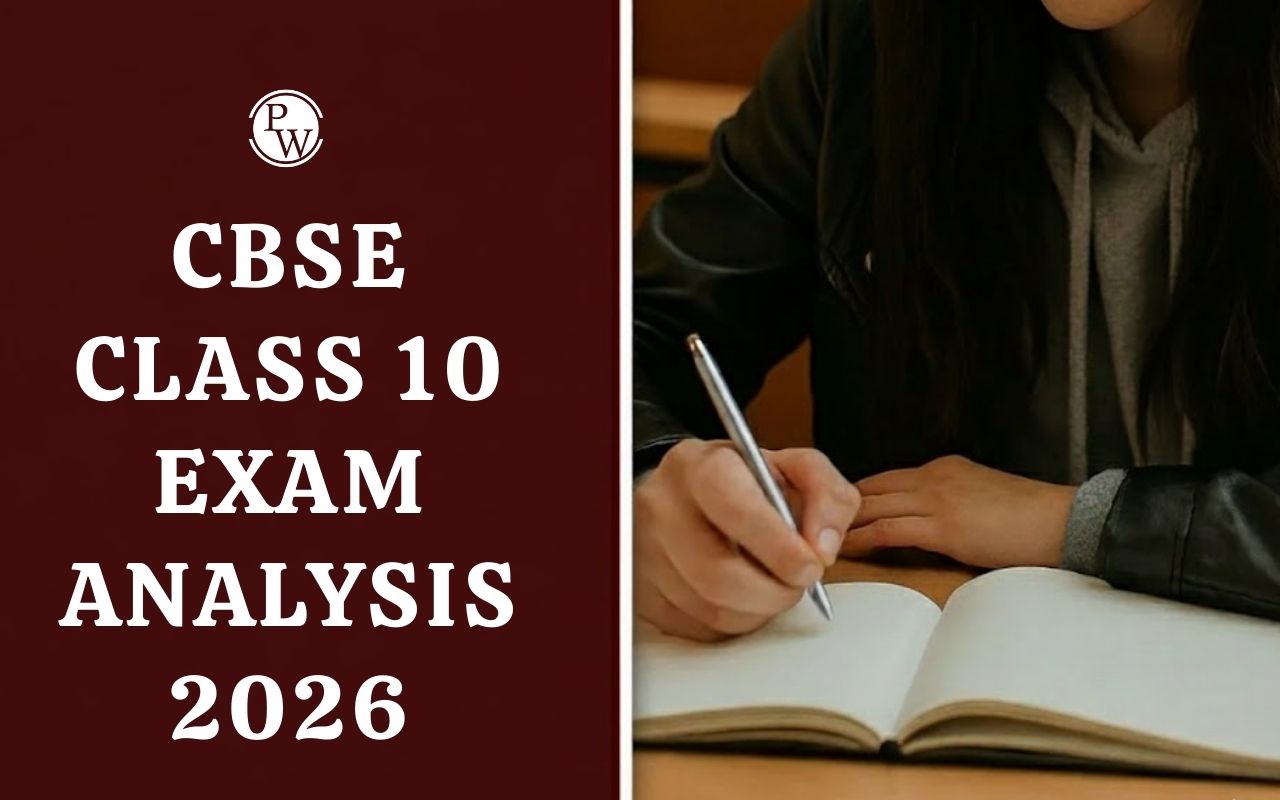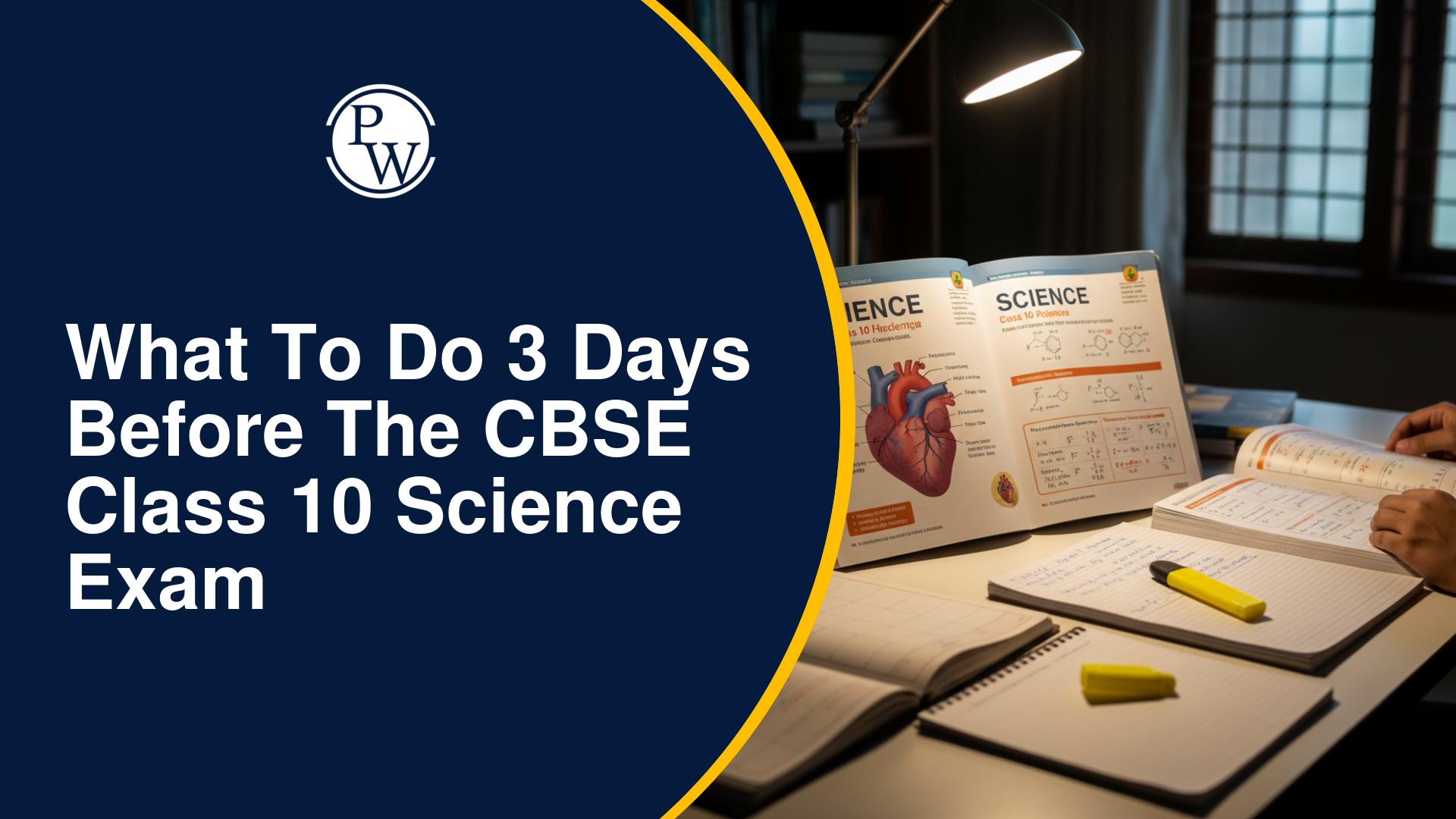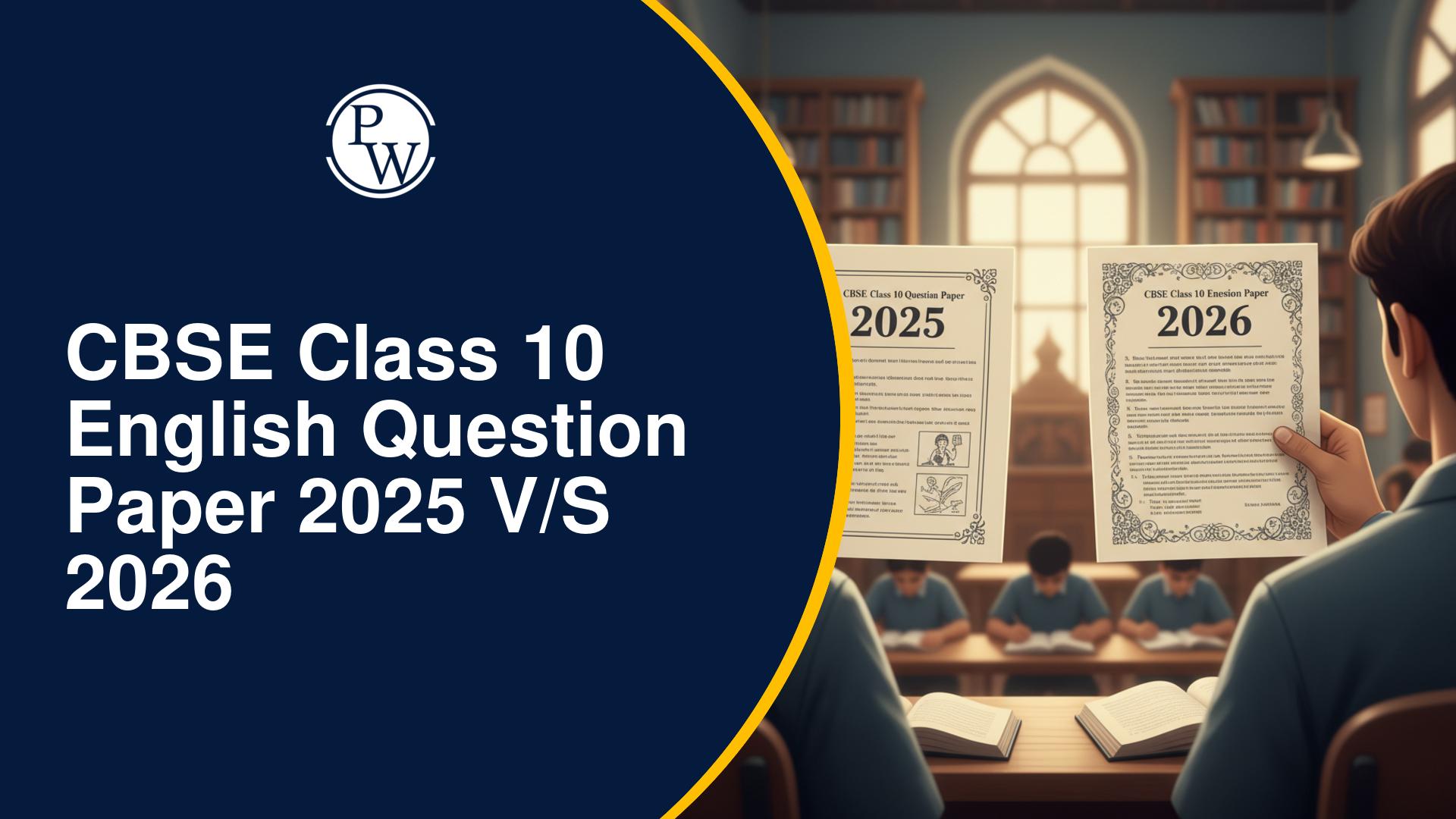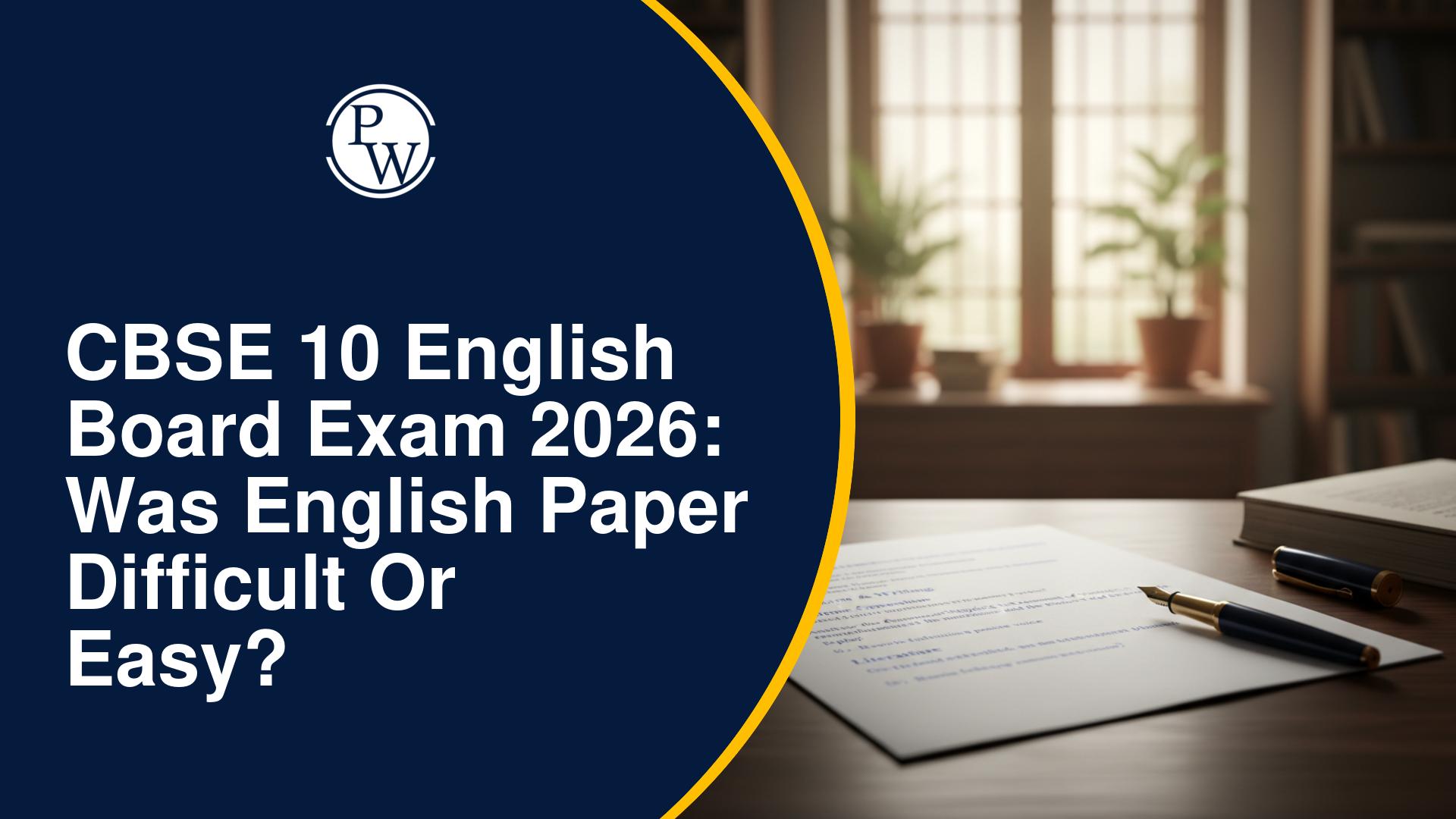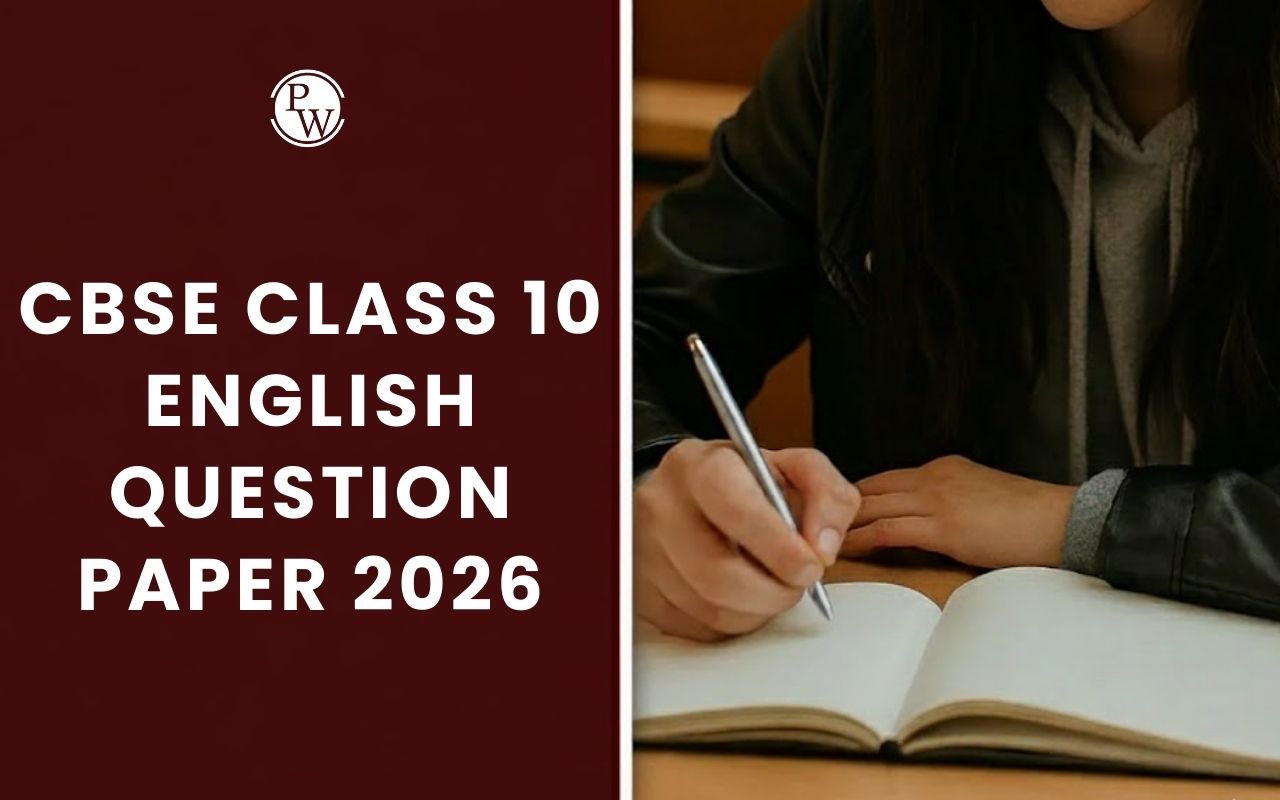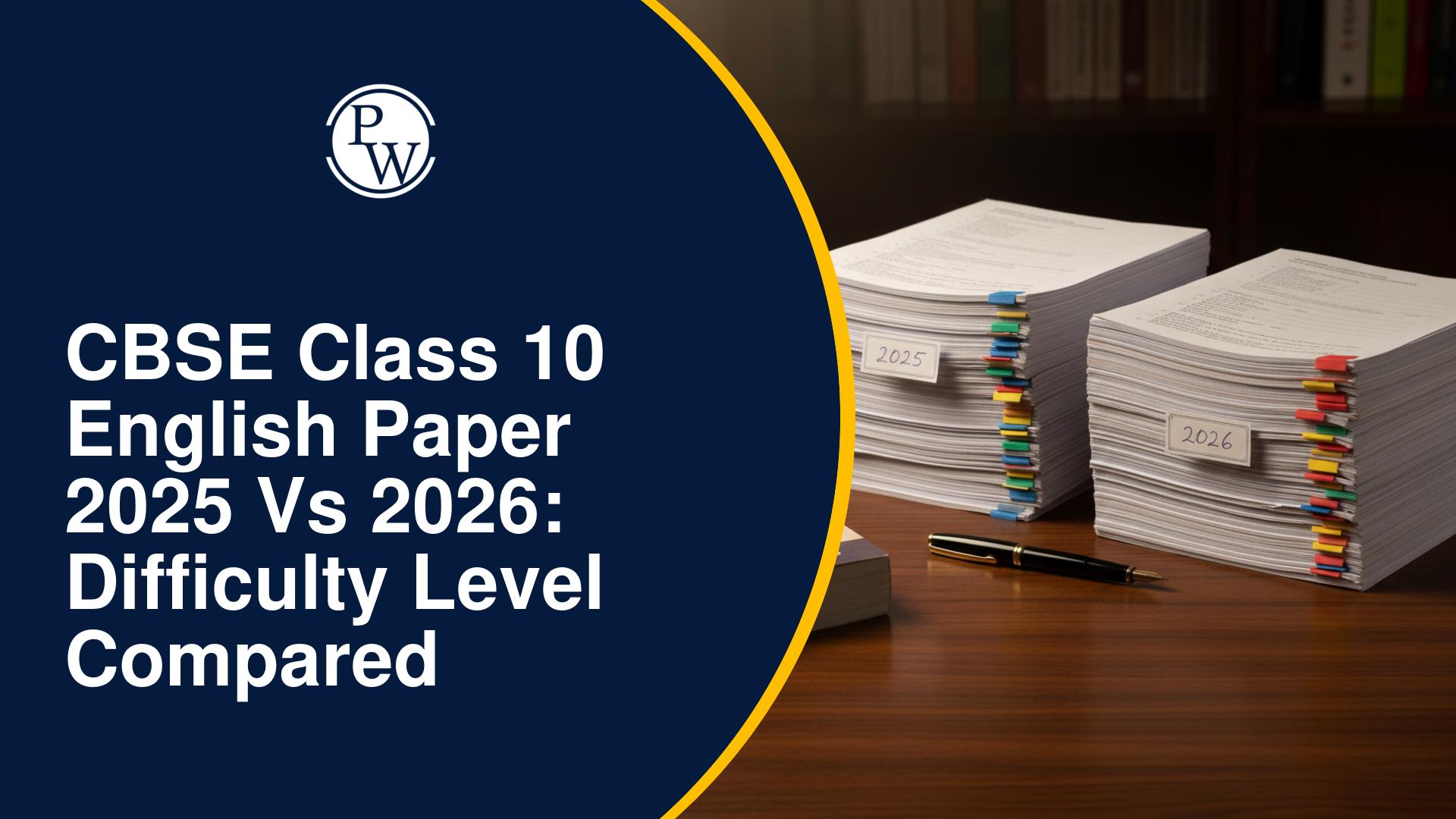
CBSE Class 10 Maths: The CBSE Class 10 Maths 60-Day Study Plan is a strategic plan designed to help students master the syllabus effectively and efficiently. The CBSE Class 10 Maths plan breaks down topics into manageable segments. Additionally, the plan emphasises conceptual clarity, regular practice, and timely revision helpful to cover CBSE syllabus for class 10 maths. Coupled with the right resources, students can build confidence and enhance their problem-solving skills thus qualifying for the exam.
Importance of CBSE Class 10 Maths 60 Day Study Plan
The CBSE Class 10 Maths 60-Day Study Plan is crucial for effective exam preparation. It provides a structured approach to cover the entire syllabus. It also ensures that students grasp key concepts and practice regularly. By breaking down topics into manageable sections, this plan helps reduce stress, boosts confidence, and enhances time management skills.Week Wise 60 Days Study Plan for CBSE Class 10 Maths
Candidates can go through the section below to know about the 60 days study plan for CBSE class 10 Maths.Week 1: Number Systems and Polynomials
Day 1-2: Real Numbers
- Study rational and irrational numbers.
- Explore the decimal representation of real numbers.
- Practice problems on identifying rational and irrational numbers.
Day 3-4: Euclid's Division Lemma
- Understand the lemma and its application.
- Solve problems related to finding HCF using the lemma.
Day 5-6: Polynomials
- Learn types of polynomials (linear, quadratic, cubic).
- Study polynomial operations (addition, subtraction, multiplication).
- Practice exercises on polynomial operations.
Day 7: Factorization of Polynomials
- Study methods of factorization (splitting the middle term, using identities).
- Solve problems on factorization.
Week 2: Polynomials and Coordinate Geometry
Day 8-9: Remainder and Factor Theorems
- Learn theorems and their applications.
- Practice problems involving theorems.
Day 10-11: Graphing Polynomials
- Study the graphical representation of polynomials.
- Practice sketching graphs based on roots and intercepts.
Day 12-13: Coordinate Geometry
- Understand the Cartesian plane and coordinates.
- Study distance formula and section formula.
Day 14: Distance Formula
- Solve problems using the distance formula.
- Practice finding distances between points in the coordinate plane.
Week 3: Linear Equations and Quadratic Equations
Day 15-16: Linear Equations in Two Variables
- Study the general form and solutions of linear equations.
- Practice solving and graphing linear equations.
Day 17-18: Quadratic Equations
- Understand the standard form and methods of solving (factoring, completing the square, quadratic formula).
- Solve quadratic equations using all methods.
Day 19-20: Applications of Quadratic Equations
- Explore real-life applications.
- Solve word problems related to quadratic equations.
Day 21: Revision
- Revise all topics covered in Weeks 1-3.
- Solve sample questions for reinforcement.
Week 4: Geometry and Triangles
Day 22-23: Triangles
- Study the properties of triangles (congruence and similarity).
- Practice problems on congruence criteria (SSS, SAS, ASA).
Day 24-25: Pythagorean Theorem
- Understand and apply the theorem.
- Solve problems involving right-angled triangles.
Day 26-27: Areas of Triangles
- Study the area formulas for different types of triangles.
- Practice calculating areas using various methods.
Day 28: Revision
- Revise triangle properties and area calculations.
- Solve CBSE Class 10 sample papers.
Week 5: Quadrilaterals and Circles
Day 29-30: Quadrilaterals
- Study properties and types of quadrilaterals (parallelograms, rectangles, squares).
- Practice problems on properties and area calculations.
Day 31-32: Circles
- Understand the properties of circles (chords, arcs, angles).
- Study theorems related to tangents and secants.
Day 33-34: Area and Circumference of Circles
- Learn formulas for area and circumference.
- Solve problems involving circles.
Day 35: Revision
- Revise quadrilaterals and circle properties.
- Solve sample problems.
Week 6: Statistics and Probability
Day 36-37: Statistics
- Study data collection, organization, and representation (graphs).
- Learn measures of central tendency (mean, median, mode).
Day 38-39: Probability
- Understand the basics of probability (experiments, outcomes).
- Study simple probability concepts and calculations.
Day 40-41: Applications of Statistics
- Solve problems related to data interpretation and analysis.
- Practice problems on mean, median, and mode.
Day 42: Revision
- Revise statistics and probability concepts.
- Solve sample problems.
Week 7: Surface Areas and Volumes
Day 43-44: Surface Areas of Solids
- Study surface area formulas for cubes, cuboids, cylinders, cones, and spheres.
- Practice problems on calculating surface areas.
Week 7: Surface Areas and Volumes
Day 47: Applications of Surface Areas and Volumes
- Solve real-life problems involving surface areas and volumes (e.g., capacity, construction).
- Practice mixed problems that require both surface area and volume calculations.
Day 48: Revision
- Review all surface area and volume formulas.
- Solve sample questions to reinforce understanding.
Week 8: Statistics, Probability, and Revision
Day 49: Statistics Revision
- Revise measures of central tendency and data representation.
- Solve previous years' board exam questions related to statistics.
Day 50: Probability Revision
- Review basic probability concepts and calculations.
- Solve practice problems and previous years' questions.
Day 51-52: Comprehensive Revision of Chapters
- Revise all chapters covered so far (Number Systems, Polynomials, Geometry, Statistics, and Probability).
- Create summary notes for quick revision.
Day 53: Mock Test
- Take a mock test covering all topics studied so far.
- Analyze performance and identify weak areas.
Week 9: Trigonometry and Heights & Distances
Day 54-55: Introduction to Trigonometry
- Study the basic trigonometric ratios (sine, cosine, tangent).
- Understand the unit circle and trigonometric identities.
Day 56: Trigonometric Ratios of Special Angles
- Learn values of trigonometric ratios for 0°, 30°, 45°, 60°, and 90°.
- Practice problems using these special angles.
Day 57-58: Heights and Distances
- Study the application of trigonometry in calculating heights and distances.
- Solve problems involving angles of elevation and depression.
Day 59: Revision
- Revise all trigonometric concepts and applications.
- Solve sample problems and previous years' questions.
Day 60: Final Comprehensive Revision
- Review all topics in a structured manner.
- Focus on weak areas identified during the mock test.
- Prepare a checklist of important formulas and concepts.
Resources to Prepare to Ace CBSE Syllabus for Class 10 Maths
If you have prepared a CBSE Class 10 study plan for 60 days then you should also add the required resources to ace it. Some of the major resources include sample paper, question papers, previous year papers etc. Adding these with the study for class 10 helps to maximise the marks in the exam.10 Tips to Finish the Maths Paper on Time
CBSE Class 10 Maths Sample Papers
CBSE Class 10 Maths Sample Papers are crucial for students preparing for board exams as they provide a realistic exam experience. These papers are designed to reflect the actual exam format, helping students familiarize themselves with the types of questions and marking schemes they will encounter. By practising with sample papers, students can assess their understanding of key concepts, identify areas that need improvement, and enhance their time management skills.Download PW Store Class 10 Maths Sample Paper PDF
CBSE Class 10 Maths Question Bank
CBSE Class 10 Maths Question Banks serve as an invaluable resource for students aiming to excel in board exams. These question banks compile a wide variety of problems covering all topics in the syllabus, allowing students to practice extensively. By working through these questions, students can reinforce their understanding of mathematical concepts and develop critical problem-solving strategies. Additionally, question banks often include different levels of difficulty, helping students gradually build their skills.CBSE Class 10 Maths Books
CBSE Class 10 Maths books are vital for students preparing for board exams, as they cover the entire syllabus in a structured manner. These books provide clear explanations of mathematical concepts such as algebra, geometry, and statistics, which are crucial for mastering the subject. Through a variety of solved examples and practice problems, students can strengthen their problem-solving skills and gain confidence in tackling different types of questions.CBSE Class 10 Maths Previous Year Books
Studying with previous year's books for CBSE Class 10 Maths is crucial for students preparing for board exams. These resources provide valuable insights into the exam pattern, frequently asked questions, and the types of problems commonly encountered. By solving CBSE Class 10 question papers, students can identify their strengths and weaknesses, allowing them to focus their revision effectively. Additionally, practising with previous years' questions helps build confidence and time management skills, essential for performing well under exam conditions.CBSE Class 10 Maths 60 Day Study Plan FAQs
How many hours should a 10th class student study Maths?
How to prepare for Maths exam in 60 days?
How to score 100 in Maths class 10 in 1 month?
Is it easy to score 98 percent in class 10?
How many hours do CBSE Maths toppers study?

